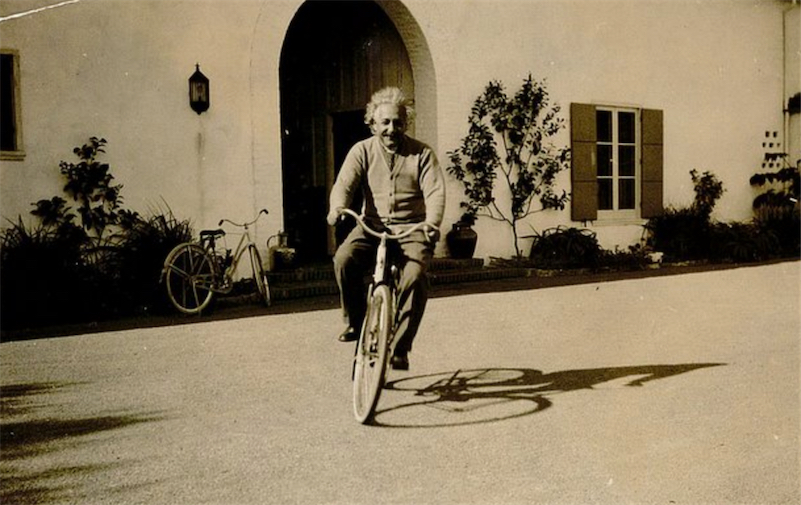It has taken rather longer than usual to produce this Sunday's “10 for Today” because, of course, I absolutely had to read all of everything!
300 Years of Element Discovery
via The Scholarly Kitchen by David Crotty
Here’s a fun visualization from Jamie Gallagher, showing the Periodic Table of Elements over time, basically tracing the discovery of different elements over the last 300 years. I like the idea of using elements as time markers, and am considering replacing the phrase, “I am older than dirt,” with, “I am older than Seaborgium.”
==============================
via ResearchBuzz: Firehose: Ben Hooper in UPI

Actor Rami Malek appears backstage after winning the award for Best Actor in a Motion Picture Drama for Freddie Mercury biopic "Bohemian Rhapsody" during the 76th annual Golden Globe Awards on Sunday. The enduring appeal of the music made by Mercury and his Queen bandmates can be attributed, at least in part, to the influence of YouTube and social media. Photo by Jim Ruymen/UPI | License Photo
The success of Golden Globe-winning Freddie Mercury biopic Bohemian Rhapsody has rocketed the music of Queen back into the popular zeitgeist, but evidence suggests the band and its classic rock contemporaries might owe much of their enduring appeal to the influence of social media.
Bohemian Rhapsody, which earned Golden Globes for Best Motion Picture -- Drama and Best Performance by an Actor in a Motion Picture for star Rami Malek on Sunday, led to its titular song making a fresh appearance in the pop charts for a third time since its release in 1975 -- the second being in 1992, owing to the famous lip-synching scene in the film Wayne's World.
Continue reading
==============================
via the Big Think blog by Robby Berman
Long hidden under trees, it's utterly massive.
- This 4,000-year-old structure can be seen from space and wasn't built by humans.
- The mounds are made up of 200 million mounds of earth.
- They're still under construction today.
==============================
via Arts & Letters Daily: Richard Rex in First Things
A review of Thomas Cromwell: A Revolutionary Life by Diarmaid MacCulloch
They said it could not be done. At least Sir Geoffrey Elton, to whose memory his former doctoral student has dedicated this book, said it could not be done. According to him, as Diarmaid MacCulloch reminds us, Cromwell was simply “not biographable.” And the authority of Elton, the doyen of Tudor historians in the later twentieth century, the man who “knew more of Thomas Cromwell than anyone since his execution,” was quite enough to keep most historians off this turf for a generation or two.
Continue reading for a fascinating view of Tudor Rngland and the monster king that Thomas Cromwell served.
==============================
via Boing Boing by David Pescovitz

There's scientific truth to the saying that you never forget how to ride a bike. Even if you can't remember phone numbers, birthdays, or where the hell you parked your car, it's likely that even if you haven't been on a bicycle in decades, you can climb on and ride away just fine. Why? Neuropsychologist Boris Suchan of Germany's Ruhr University Bochum lays it out as best we know in Scientific American:
Continue reading
==============================
via Interesting Literature
This week’s classic film review analyses The Running Man, the 1980s dystopian action movie based, and yet also not based, on a Stephen King novel
In J. W. Eagan’s sage words, ‘Never judge a book by its movie.’ The following is part of this new monthly ‘literary film review’ segment on this blog, and as such it’s a review of the film of The Running Man (dir. Paul Michael Glaser – yes, Starsky from Starsky and Hutch – 1987), but it’s important to go back to the – very different – source material for The Running Man: that is, the novel called The Running Man, by Richard Bachman, aka Stephen King.
Continue reading
==============================
via the New Statesman by Nina Caplan

ROUX OLIVIER/SAGAPHOTO.COM / ALAMY
Only fair, as France’s grapes are partly in debt to the Lebanese.
Lebanon is a beautiful country but its story is complicated and so, therefore, is its wine. It is generally agreed that a French connection is helpful to a wine region while rule by teetotal Islam is not, but if history were that straightforward then war would surely be obsolete by now and so, quite possibly, would drink.
Continue reading
==============================
via the Big Think blog by Ned Dymoke
Inconceivable wealth. And a few lessons in how not to get rich, too.
- You've definitely heard of Apple. But what about the Dutch East India Company?
- Did a 1911 Supreme Court decision result in more millionaires in America than any other court case?
- One example of how not to do it: the rise and fall of the Mississippi Company.
==============================
via Boing Boing by David Pescovitz
Edgar Allan Poe scholar Scott Peeples explains the black magic of Poe's work nearly 170 years after he died.
From TED-Ed:
The prisoner strapped under a descending pendulum blade. A raven who refuses to leave the narrator’s chamber. A beating heart buried under the floorboards. Poe’s macabre and innovative stories of gothic horror have left a timeless mark on literature. But just what is it that makes Edgar Allan Poe one of the greatest American authors? Scott Peeples investigates.==============================
via Interesting Literature
Like Edward Thomas’s ‘Rain’, Alun Lewis’s ‘All Day It Has Rained’ is a rain poem that is also a war poem – although Alun Lewis was a poet of the Second World War rather than the First. Indeed, Lewis was an admirer of Thomas’s poetry and ‘All Day It Has Rained’ might be considered his tribute to Thomas’s rainy war poem (Thomas is even mentioned by name at the end of the poem). The mention of ‘celebrities’ and ‘refugees’ (uneasily rhymed on purpose here) makes this a curiously modern poem – a poem for our times as well as of its time.
Continue reading
No comments:
Post a Comment